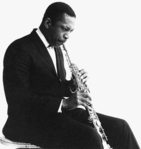We try to keep ordsprog
Antal ordsprog er 1469561
varav 1490770 på nordiska
Ordsprog (1469561 st) Søg
Kategorier (2627 st) Søg
Kilder (167535 st) Søg
Billeder (4592 st)
Født (10495 st)
Døde (3318 st)
Datoer (9517 st)
Lande (5315 st)
Idiom (4439 st)
Lengde
Topplistor (6 st)
Ordspråksmusik (20 st)
Statistik
Denna sidan visar ordspråk som liknar "We try to keep it pretty true. But you know how it is when you see a band live and it doesn't sound like the record, because of the production? We try to re-create what's there, and spice it up a little as well.".
varav 1490770 på nordiska
Ordsprog (1469561 st) Søg
Kategorier (2627 st) Søg
Kilder (167535 st) Søg
Billeder (4592 st)
Født (10495 st)
Døde (3318 st)
Datoer (9517 st)
Lande (5315 st)
Idiom (4439 st)
Lengde
Topplistor (6 st)
Ordspråksmusik (20 st)
Statistik
Denna sidan visar ordspråk som liknar "We try to keep it pretty true. But you know how it is when you see a band live and it doesn't sound like the record, because of the production? We try to re-create what's there, and spice it up a little as well.".
